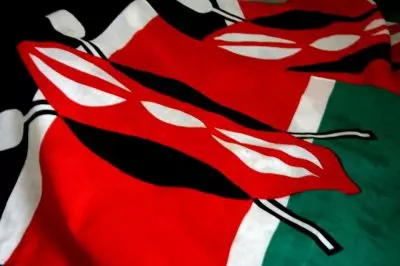 The decision of the Kenyan Government to bring back the 20% gambling tax and to double the tax rates imposed on foreign tech companies is expected to create some significant financial hurdles for the country’s gambling and betting sector.
The decision of the Kenyan Government to bring back the 20% gambling tax and to double the tax rates imposed on foreign tech companies is expected to create some significant financial hurdles for the country’s gambling and betting sector.
At the time it published its 2022 Finance Bill, the Kenyan Treasury revealed that it would reintroduce the controversial 20% tax rate for the gambling industry. The U-turn has taken place less than two years after the tax rate was abandoned by the Government in 2020 after facing significant criticism from the Kenya Betting Control and Licensing Board (BCLB).
The gambling regulatory body and some companies operating in the country described the new tax rate as a market killer. And in fact, the initial implementation of the fact literally killed a large part of the local gambling sector, as it made a number of betting operators, such as SportPesa and Betin, exit the Kenyan gambling market.
In 2021, the Treasury Cabinet Undersecretary of the country, Ukur Yatani, has shared that he intended to once again introduce the 20% tax rate on the local gambling market. As a result, the Finance Bill has been submitted to the Kenyan Departmental Committee on Finance and National Planning.
Kenyan Government Reduced the 20% Gambling Tax Rate to 7.5% Following Criticism
 The latest move of the Government to make amendments to the tax that is supposed to be paid by the sports betting industry of the country makes its policy to the sector seem too volatile.
The latest move of the Government to make amendments to the tax that is supposed to be paid by the sports betting industry of the country makes its policy to the sector seem too volatile.
As CasinoGamesPro reported at the time, the Kenyan Revenue Authority (KRA) revised its 2021 Finance Bill to eventually see the Government modify its federal taxes on the local gambling and telecom industries. The KRA has agreed to reduce the 20% blanket betting tax that was imposed on all verticals in the gambling sector. As a result, the controversial tax on betting stakes was cut from 20% to 7.5% after the competent authorities had heard evidence from the sports betting operator Sportpesa which had left the market over the previously increased gambling tax rates in the country.
The tax on betting stakes had caused some massive turbulence in Kenya since 2019 when local legislators initially decided to boost the existing tax rate from 10% to 20%. The increase was followed by a long dispute and eventually led to the exodus of a few betting operators, such as SportPesa and Betin, from the Kenyan gambling sector.
However, at a later stage – during the 2021 negotiations of the Finance Bill, the Finance Committee noted that the higher tax rate had severely hit the Kenyan gambling market, resulting in lower revenue due to the exits of the large gambling operators from the industry. At the time, the Finance Committee even proposed that the tax should be fully scraped.
Inconsistent Policy Makes Gambling Regulation in Kenya Look Like Political Impotence
 Now, Kenyan authorities are aiming at increased revenue via higher tax rates on various economic sectors. However, their inconsecutive actions in terms of the local gambling tax have raised questions about what will follow next in the sector.
Now, Kenyan authorities are aiming at increased revenue via higher tax rates on various economic sectors. However, their inconsecutive actions in terms of the local gambling tax have raised questions about what will follow next in the sector.
At a first glance, the fact that the Government has already boosted and then lowered the tax a few times creates the impression that local lawmakers are not exactly sure how to properly regulate the local gambling industry.
The 20% tax on gambling operations has been considered too large, with local betting companies saying it is seriously hurting their revenues. Two of the biggest sports betting operators have chosen to leave the country as a measure against the tax. Still, not gambling companies have been suffering negative effects as a result of the larger tax – for example, Betsson’s flagship brand Betsafe has found success in the Kenyan gambling sector despite the massive tax rate.
Some analysts have been expecting to see a more favorable gambling tax rate of 7.5% resulting in an increase in operators’ interest in the Kenyan gambling market.
However, the fact that local authorities have proven themselves incapable of making a final decision on the matter has raised the uncertainty of the market conditions, which could fend off operators rather than make them more willing to legally offer their services to local customers. The recent re-introduction of the 20% gambling tax is now expected to make things worse, with companies operating in the black and gray sectors considered to be able to take further advantage of Kenyan gamblers even more.